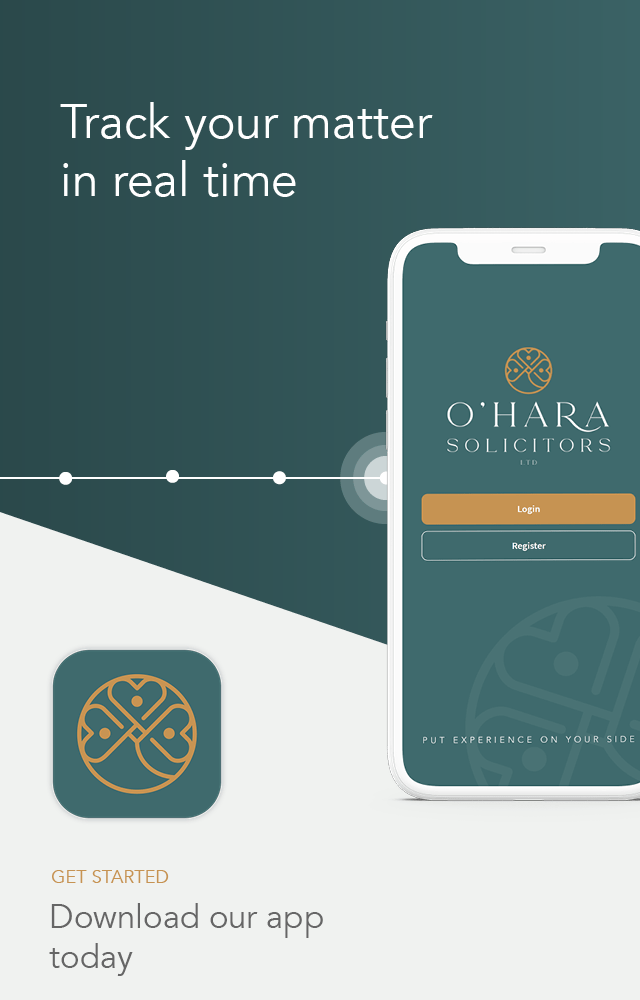There will be a point or time in most people’s lives where they will go through the death of a family member or close friend and be given the task of dealing with their estate. During this difficult time there can be a lot to think about and do with many people are uncertain of the steps that need to be taken.
Understanding the Probate Process.
The guide will give you a basic overview of how the probate process works covering the most frequently asked questions to help you understand the formalities that have to be handled during this time.
Initial Steps
When someone dies at home, the first step is to contact the family doctor immediately. If the death was unexpected, the doctor will provide a medical certificate showing the cause of death together with a note on how to register it. You should then contact the chosen funeral director who will then come to collect the body.
If someone dies in the hospital, the body will usually be kept there until the medical certificate is issued and the body is collected by the chosen funeral director.
NOTE: If the deceased is to be cremated, the medical certificate must be signed by two doctors although this can be done later.
If the deceased had any firearms, the death should be reported to the local police and arrangements made for the items to be kept by another person with a license or be decommissioned.
Registering the Death
A death must be registered within five days, in the district where the person died. The contact information on where you are to do this can be found online or with your local district council. You can also go to https://www.gov.uk/register-a-death. In some circumstances, you can register a death at a local hospital.
When you register the death, you should take the following documents or information with you, if available:
- The person’s birth certificate and marriage or civil partnership certificate
- Details of the person’s date and place of birth, if their birth certificate is not available
- Details of any other names by which the person was known
- The person’s usual address
- The medical certificate issued by the doctor
- Their last occupation
- The name, occupation and date of birth of their spouse or civil partner
- Their medical or NHS card or National Insurance number
- Details of any state benefits they were receiving
The registrar will give you the following:
- A certificate for burial or cremation (called a “green form”)
- A form for state benefits (called a “BD8”)
- As many copies of the death certificate as you request
You will have to pay for the death certificates but this can be reimbursed from the estate. This cost will vary between different locals councils. We advise that you obtain a number of copies as it will make it easier for the person handling the estate (the executor) to send out multiple copies at the same time to different institutions or businesses that the deceased person had an investment with. Every single institution will want to see an original copy of the death certificate. This cannot be a photocopy.
What if the coroner is involved?
If the death was unexpected, it should reported to the coroner which is sometimes done by the police if involved but usually by the doctor who was called when the person died.
An unexpected death would be as follows:
- The person dies within 24 hours of being admitted to hospital or during an operation
- The doctor does not know the cause of death and therefore cannot issue a medical certificate
- The person who ha died was not seen by a doctor within the last 14 days
Any death reported to the coroner will generally lead to a post mortem, and in some cases and inquest would then be held. The registrar will be informed of the death so it is helpful to keep in touch with them if not you, however the undertaker can do this on your behalf.
Will there be an inquest?
If the coroner is not initially satisfied with information leading to the deceased’s death, they will hold an inquest so that further enquiries can be made.
When this happens, they will send the next-of-kin a certificate for cremation or an order for burial. The coroner will also send a certificate to the registrar so that the death can be registered.
Finding the will of a deceased person
Wills and codicils (amendments to the will) are most often held by the solicitor who drafted it or sometimes in a bank or deposit box. A copy is usually kept by the deceased within their own records.
If a person has died without making a will, this is known as to have died intestate and their estate will be handled in accordance with standard legal rules.
Arranging the funeral
The deceased may have left instructions in their will or a letter on their funeral wishes. It is also worth checking if they left a organ donor card or have any special requests such as donating their body to medical research.
You should also investigate on whether they have a pre-paid funeral plan to help cover some of the costs. This may not just cover the funeral itself but other expenditures including newspaper notices and the fees to the vicar, church or crematorium.
What happens to the deceased’s assets?
If the deceased has left a will, legal ownership of their assets passes immediately to the executors who are named in the will. If there is no will, ownership passes to the administrators when the letters of administration have been issued.
The beneficiaries, those of who will eventually benefit from the estate and its assets do not legally own anything until it is handed over to them by the executors or administrators. The only right the beneficiaries have at this stage is to have the estate properly administered for their eventual benefit.
Is there a surviving partner?
If the deceased has a surviving partner, they must send off a BD8 state benefits form which will be given to them by the registrar as soon as possible. This is so their state pension can be increased if appropriate to their situation.
If the surviving partner of a deceased will now live alone, they should contact their local council to get the single occupancy allowance to their council tax.
Any joint bank accounts or building society accounts will change the names on the account to just the survivor’s name once they have seen an original death certificate. However, all bank details must be handed over to the executor or administrator as the funds may still belong to the deceased person’s estate.
Duties of the executor or administrator handling a probate estate
The executor or administrator of a deceased’s estate is responsible for collecting and safeguarding all assets, obtaining the grant of probate, paying any liabilities left to the estate, and administering the estate in accordance with the law. This also includes handling any taxes that need to be paid.
More Information on probate
For any further advice, please contact our private client department initially through [email protected] or call us on 02392 259822.
For further help we would also recommend the following:
- Age UK – call 0800 169 2081 for advice or information
- Cruse Bereavement Care – a counselling and advice service for bereaved people on 0808 808 1677
- HM Revenue & Customs – inheritance tax helpline on 0300 123 1072
- National Association of Funeral Directors – call 0121 711 1343 or visit nafd.org.uk
- Natural Death Centre – call 01962 712 690 or visit naturaldeath.org.uk
- The Samaritans – call 116 123 from any phone or visit www.samaritans.org






